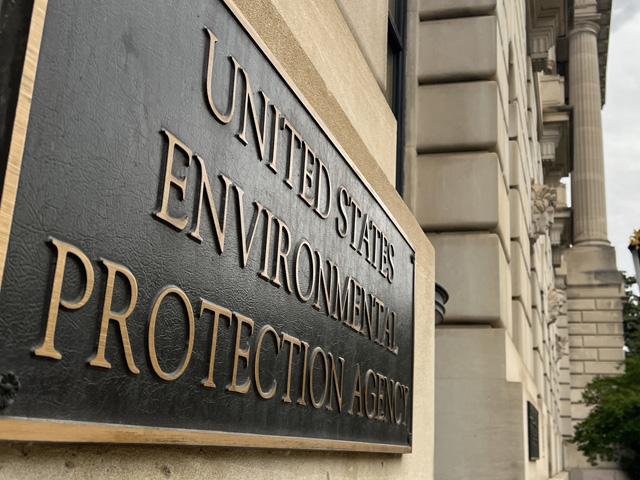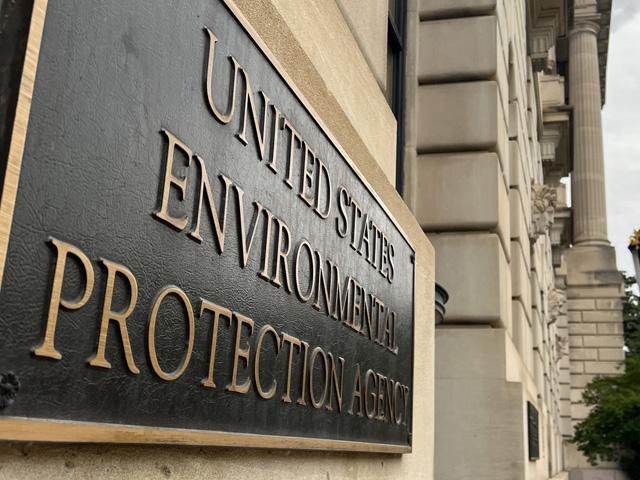Ethanol Blog
US Senators Want Biofuels Treated Equally With EVs in Upcoming RFS Set
LINCOLN, Neb. (DTN) -- A bipartisan group of 13 U.S. senators asked EPA Administrator Michael Regan to set corn ethanol volumes above 15 billion gallons as part of an upcoming Renewable Fuel Standard reset rule, in a letter to Regan on Wednesday.
In addition, the lawmakers asked Regan to take steps to restore year-round E15 sales and to treat biofuels on par with an expected inclusion of so-called e-RINS, or renewable identification numbers for electric vehicles, in the RFS.
Reports have surfaced in recent weeks that the Biden administration is considering changing the RFS to aid the growth of the EV industry by including the sale of RINS for EVs as part of the current RINS system.
Because the statutory RFS mandates expire in 2022, the EPA will now oversee volume requirements in the future starting with the expected release of a reset proposal in the coming weeks.
In a letter to Regan, Republican Sens. Charles Grassley, John Thune, Deb Fischer, M. Michael Rounds, Joni Ernst and Roger Marshall, along with Democratic Sens. Tammy Duckworth, Gary Peters, Tammy Baldwin, Amy Klobuchar, Sherrod Brown and Dick Durbin, said the RFS reset needs to be "robust" to take advantage of incentives and investments in biofuels.
"Strong RVOs (renewable volume obligations) will be bolstered by numerous incentives and investments that are poised to increase biofuel blending and further reduce the carbon intensity of these fuels," the senators said.
"Additionally, we request that EPA take supportive actions to provide regulatory certainty and afford new opportunities for these homegrown fuels to deepen their contribution to America's evolving energy landscape. Through this rulemaking, EPA has a historic opportunity to not only reinforce its efforts to restore integrity to the RFS but chart a new course for biofuels that will help meet America's diverse energy demands while further decarbonizing numerous sectors of our economy.
"In order to guard against sidelining decades of investment and the diverse workforce that supports biofuels, we request that EPA set the conventional target above 15 billion gallons, set advanced biofuel volumes that account for increased production capacity of fuels like SAF (sustainable aviation fuel) and renewable diesel, and ensure that RINs for emerging technologies and e-RINs are additive to existing volumes."
The lawmakers told Regan recent USDA investments in blending infrastructure would provide support for "progressively higher blending targets" in the upcoming RFS rule.
P[L1] D[0x0] M[300x250] OOP[F] ADUNIT[] T[]
USDA announced in August $100 million in cost-sharing grants for blending infrastructure including fuel pumps, dispensers and storage tanks for blends above E10 and B5 through the Higher Blends Infrastructure Incentive Program (HBIIP).
In April 2022, $5.6 million in funding was invested in blending infrastructure in California, Delaware, Illinois, Maryland, New Jersey, New York and South Dakota.
The letter said EPA projected the April funding would "increase the availability of biofuels by 59.5 million gallons per year" across those states, as well as more than $60 million delivered through other HBIIP awards made since 2020. In addition, expanding consumer access to higher blends will be supported by $500 million for biofuel infrastructure and agriculture product market expansion.
When it comes to new fuels such as SAF, electricity generated from biogas and electric vehicles, the senators said those fuels must be considered as "additive to existing fuel technologies" and blending targets.
"They must also be subject to the same rigorous transparency, integrity, and lifecycle analysis standards as other renewable transportation fuels," the letter said.
"Failure to do so will displace biofuels that have been foundational to decarbonizing the transportation sector, leave additional environmental gains on the table, and hinder industry growth."
The senators said the best way to expand biofuels markets is for EPA to provide certainty to the industry.
"Of course, the most efficient way to promote higher blends is to provide the marketplace the certainty that fuels like E15 may be sold year-round, removing the costly deterrent of fuel switching," the senators said in the letter.
"The president was correct to ensure uninterrupted sales of E15 during 2022 to provide consumers driving approximately 96% of light-duty vehicles a lower-cost fuel option while displacing Russian oil. Even during this time of sustained energy challenges, E15 was sold for as much as 96 cents cheaper per gallon than E10 under the emergency waiver. We encourage EPA to utilize any authority at its disposal to extend year-round E15 into the future."
The senators also asked Regan to work on creating accurate and standardized lifecycle emissions modeling on biofuels, to help "settle recurring questions regarding the net environmental benefit of biofuels," the letter said. The lawmakers urged EPA to adopt the U.S. Department of Energy Argonne National Laboratory's GREET model for lifecycle analysis in the set rule.
The EPA has struggled to approve additional RFS pathways for such fuels as cellulosic ethanol made from corn-kernel fiber, leaving a backlog of requests to consider.
"By rendering timely decisions for prospective advanced fuels, including those derived from corn-kernel fiber that have already proven their efficacy and safety in states like California, EPA would add value to the bottom line of many biofuel operations and enable them to generate more fuel per bushel of feedstock while further reducing the carbon intensity of each gallon," the senators said.
"Similarly, EPA can help scale-up SAF production by addressing in the set, regulatory barriers that deny certain bio-intermediates entry to SAF. Such actions would permit these biofuel producers to use at scale the investments they have made, access low-carbon markets, and pave the way for the next generation of renewable fuel innovation."
Read the letter here: https://www.thune.senate.gov/…
Read more on DTN:
"EPA Chief Touts Biofuel Policies," https://www.dtnpf.com/…
Todd Neeley can be reached at todd.neeley@dtn.com
Follow him on Twitter @DTNeeley
(c) Copyright 2022 DTN, LLC. All rights reserved.





Comments
To comment, please Log In or Join our Community .